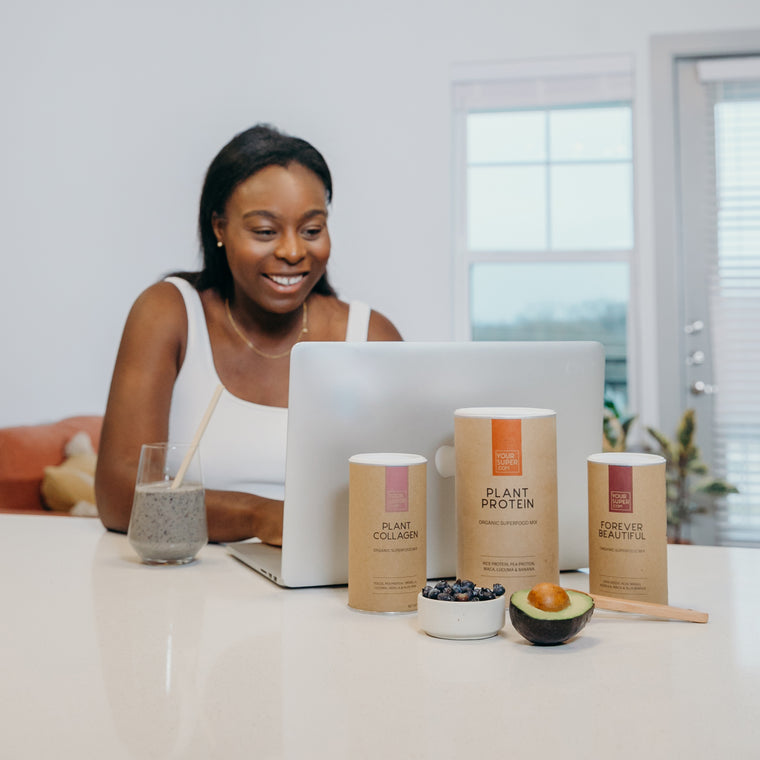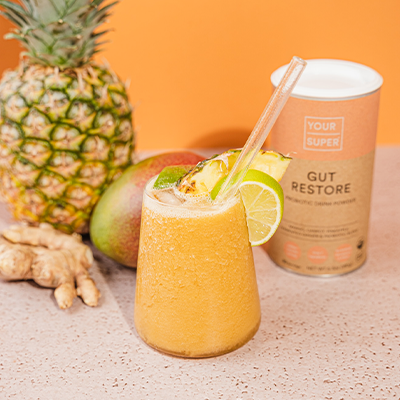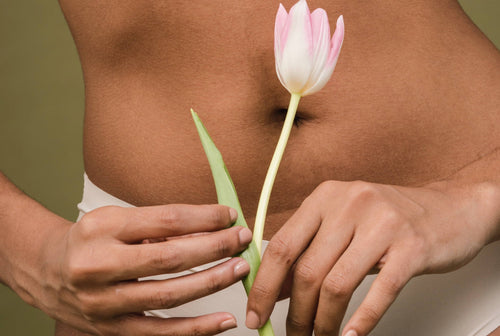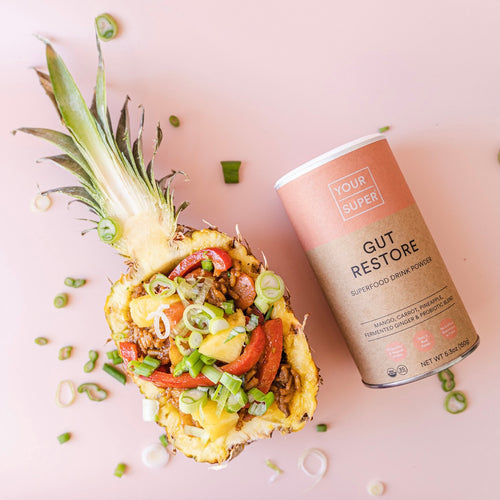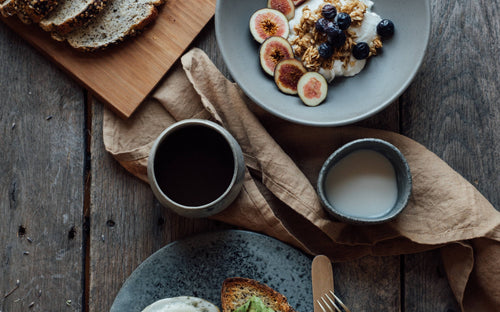What are probiotic foods?
Probiotics are live cultures that can support your gut health. When ingested, these microorganisms travel to your gut where they settle and help digest components of your food that your cells may struggle to break down.
By adding more probiotics to your diet, you ensure your gut flora is diverse and balanced. This plays a major role not only in regulating your digestion but can also affect your immune system, your mood, or even your skin health.
In contrast to probiotics, prebiotic foods are also important for the gut, as they provide valuable food for the bacteria. Learn more about the difference between probiotics and prebiotics here.
Many probiotics can be bought and taken in the form of supplements (and tablets are not the best way to take care of your body). However, you can also simply eat probiotic foods in their natural form.
Not sure what to put on your shopping list? This list of the 8 best probiotic and plant-based foods is just what you need.
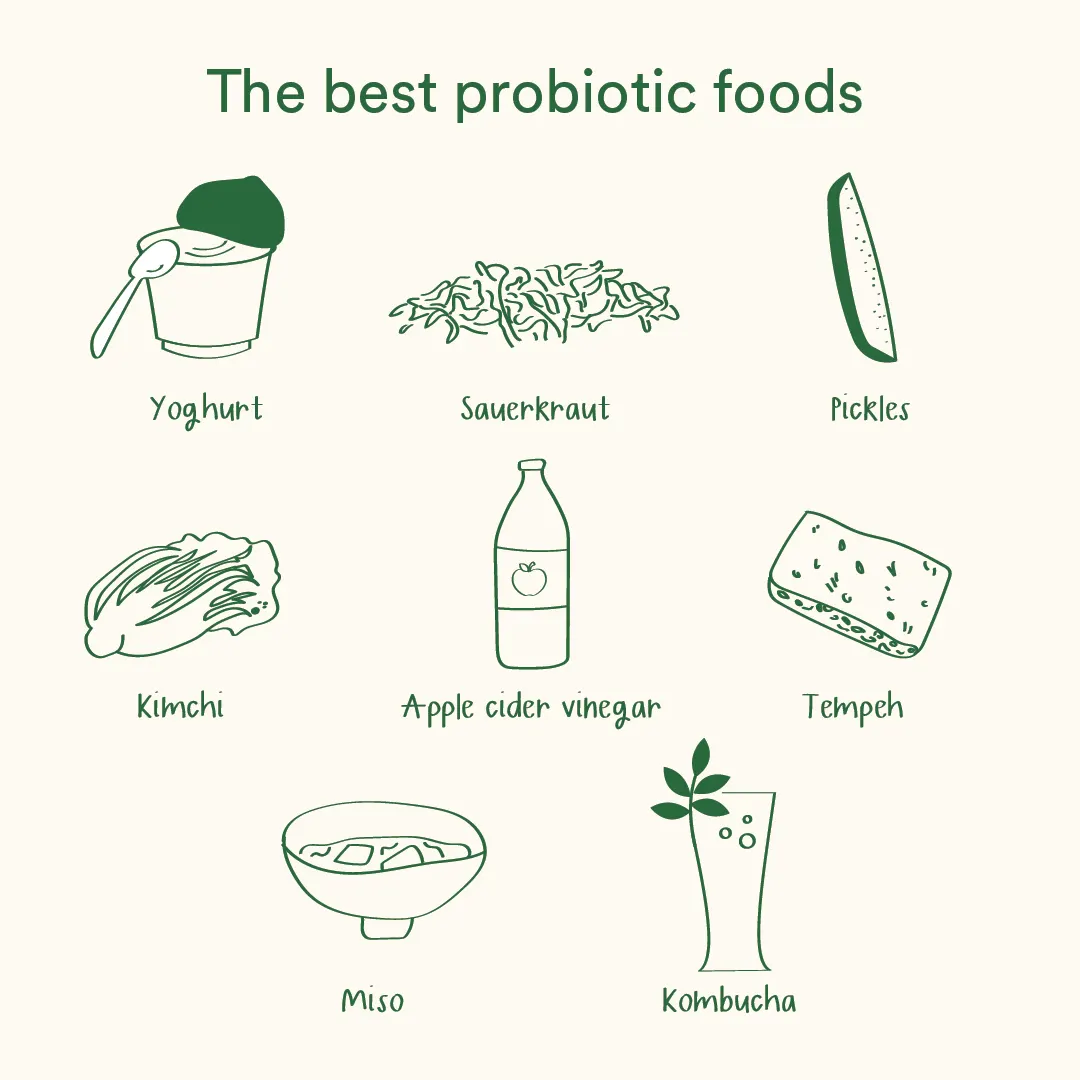
The 8 best probiotic foods
1. Yoghurt: The tried and tested must-have
To make yoghurt, lactic acid bacteria are added to milk. The fermentation process acidifies and thickens the milk - and yoghurt is the result. And plant-based yoghurts follow the exact same process! Coconut milk, oat milk or soy milk yoghurts all contain excellent probiotics for your gut flora. When buying yoghurt, make sure that it contains only minimal ingredients and no hidden sweeteners. At home, you can sweeten the yoghurt yourself with fruit, agave syrup, or superfoods like the Forever Beautiful Mix! Yoghurt also goes well with savoury dishes, e.g. for tzaziki or as a dip for sweet potato.
2. Sauerkraut: Grandma's probiotic hit
Sauerkraut is made from fermented cabbage. As with yoghurt, fermentation ensures, among other things, that the good bacteria can multiply. Sauerkraut is not only an excellent source of probiotics, but also prebiotics (such foods are called synbiotic), as the acids it contains can additionally stimulate the growth of bacteria in the gut. As if that weren't enough, sauerkraut also contains a high content of vitamin C and natural digestive enzymes.
3. Kimchi: The Korean sauerkraut variant
If you like it a little spicier, kimchi might be something for you. The Korean national dish is served as a side dish with rice, vegetables, or other dishes. The basic ingredient is mainly Chinese cabbage, but also other vegetables such as radish and various spices such as chili powder. Here, too, lactic acid bacteria are responsible for the fermentation. Caution: Kimchi is not always vegan, as it sometimes contains fish sauce!
4. Tempeh: The versatile source of probiotics
Tempeh originates from Indonesia and traditionally consists of steamed soybeans that are fermented. The fermentation makes the soybeans easier to digest and the lactic acid bacteria can multiply. Tempeh, along with classic tofu, is a very good source of protein in the vegan diet and is suitable as a side dish in colourful bowls.
5. Miso: The probiotic condiment
Another product that is created by fermenting soybeans: miso. The spicy paste is produced with the help of the mould "koji" and is mainly used in Asian cuisine. In addition to the healthy bacteria, miso also provides proteins as well as B vitamins, iron, and calcium. By the way: Its secondary plant substance genistein is considered an anti-ageing agent and is used in the cosmetics industry!
6. Apple cider vinegar: The surprising probiotic bomb
Another well-tried probiotic source: apple cider vinegar. People used apple cider vinegar as far back as the Middle Ages! It is made from fermented apple juice and is a popular ingredient in delicious salad dressings.
7. Pickles: The crunchy probiotic snack
Another probiotic kitchen staple is sour cucumbers, also known as pickled cucumbers. The production process is similar to that of sauerkraut. Sour cucumbers are fermented in water with lactic acid bacteria, sugar, salt, and herbs. A perfect snack that makes your intestinal flora happy.
8. Kombucha: The trendy probiotic drink
Kombucha has been around for over 2,000 years and originated in Japan. Nevertheless, the fizzy black tea has only found its way to us in recent years. The bacteria it contains are also produced by fermentation with the yeast fungus Scoby. Kombucha is a deliciously fruity digestive aid and tangy alternative to alcoholic drinks! The best proof: these superfood mocktails!
Live cultures meet superfoods
Gut Restore makes it even easier for you to benefit from the good bacteria. This drink powder contains 3 strands of powerful lactobacteria to support your gut health and normal digestive functions. You can simply mix it with water for an instant tropical drink that aims to strengthen your intestinal flora in a plant-based way. Gut Restore also contains digestive enzymes from pineapple (bromelain) and other superfoods for a happy gut.


